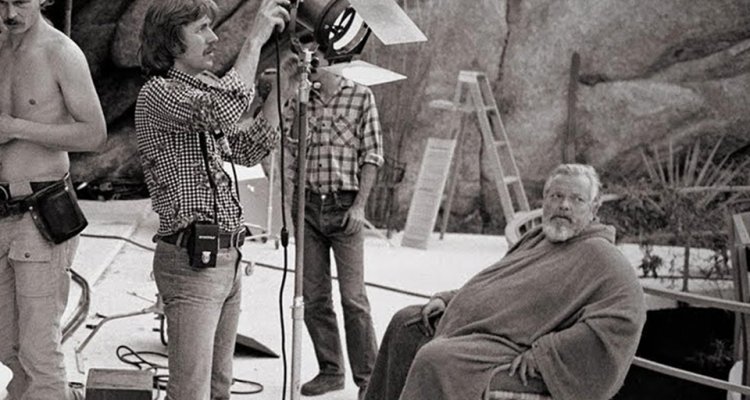Morgan Neville‘s “They’ll Love Me When I’m Dead” is more than just a documentary about the making of Orson Welles‘ “The Other Side of the Wind.” The legendary’s director’s final film, which has been touted for the better part of three decades as the ‘greatest film never released,’ finally is available for all to see on Netflix. Neville’s narrative in ‘Dead’ focuses not just on Welles’ unreleased production, but also his final two decades of life.
“They’ll Love Me When I’m Dead” is an attempt to dissect the director’s controversial and mysterious personality, as well as to explain the experimental style in which Welles worked with in the ’70s and ’80s. Neville’s 98-minute doc is a cinephile’s dream and has its focus centered on some of the unfinished films, which fell apart and were never completed during the course of Welles’ twilight years, including the aforementioned ‘Other Side.’
There’s a sort of backhanded message in this film that maybe, just maybe, Welles never intended to finish these projects in the first place and that he was just experimenting. Maybe he was trying to make something out of nothing or, as the filmmaker himself says in the doc, finding the “happy accidents,” the stuff that happens without intention as you shoot a film. It’s all part of the mysterious lore that has been built around Welles ever since his passing.
‘When I’m Dead’ is a fascinating movie. It may seem silly to ask but why make an Orson Welles film right after a Fred Rogers film [“Won’t You Be My Neighbor?”]?
I actually was working on the Welles before the Rogers film, it was percolating for years. I read Josh Karp‘s book about his last movie and I decided at the time, if I could ever get that raw footage, what an amazing opportunity it would be to tell Orson’s story through a film he was making about himself for ten years. That time we hooked up with Frank Marshall and Phillip Brimshaw and we made this pact that if we could ever get the footage they would finish the film and I would make a documentary. When Netflix came in they said, “Well how about we do both?” As a film lover, I couldn’t have thought of a better project than to spend a year going through Orson Welles dailies. [laughs]
It ended up being a companion to “The Other Side of the Wind.” In fact, I think one should probably watch your doc first before watching Welles’ film.
I tend to agree with that. ‘Other Side of the Wind’ doesn’t give the viewer a whole lot of context. My doc helps you understand what Orson was doing and what the intention was. It’s an incredibly ambitious film and Orson was nothing if not ambitious. He’s an endlessly fascinating character. I grew up in a household of film lovers and Orson was a hero in our house. As a young teenager, I had seen most of his films and now I talk to people under 30 and they don’t know who he is and I find that incomprehensible. I find this chapter of his life as being kind of a washed-up actor because none of the work he was doing ever saw the light of day. So what I was trying to do was to show that Orson was doing some of his most ambitious work at the end of his life and that’s something I found heroic. No matter the lack of commercial potential for these things, that never stopped him from doing them, it maybe even encouraged him.
Yeah, he was trying to redefine cinema through editing, through a meta-narrative. He did end up squeezing a film out of this phase, the wonderful “F For Fake.”
“F For Fake” was hugely influential for me as a documentary filmmaker. It’s one of the most important non-fiction films ever. I feel like there were so many ideas in “F For Fake” that haven’t even had a chance to be expanded upon. “F For Fake” was just brimming with kind of invention and ingenuity. It’s no surprise that this film is my attempt to pay homage to “F For Fake,” at least in terms of narrative and tone, it was like my North Star thinking about it.

